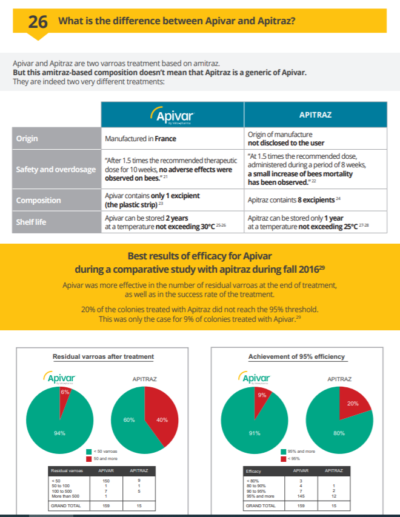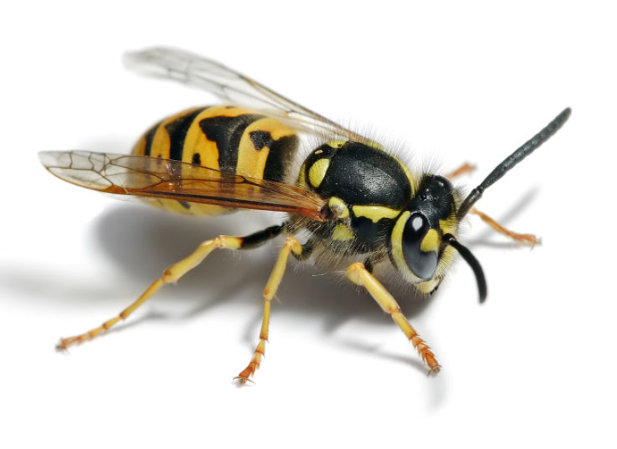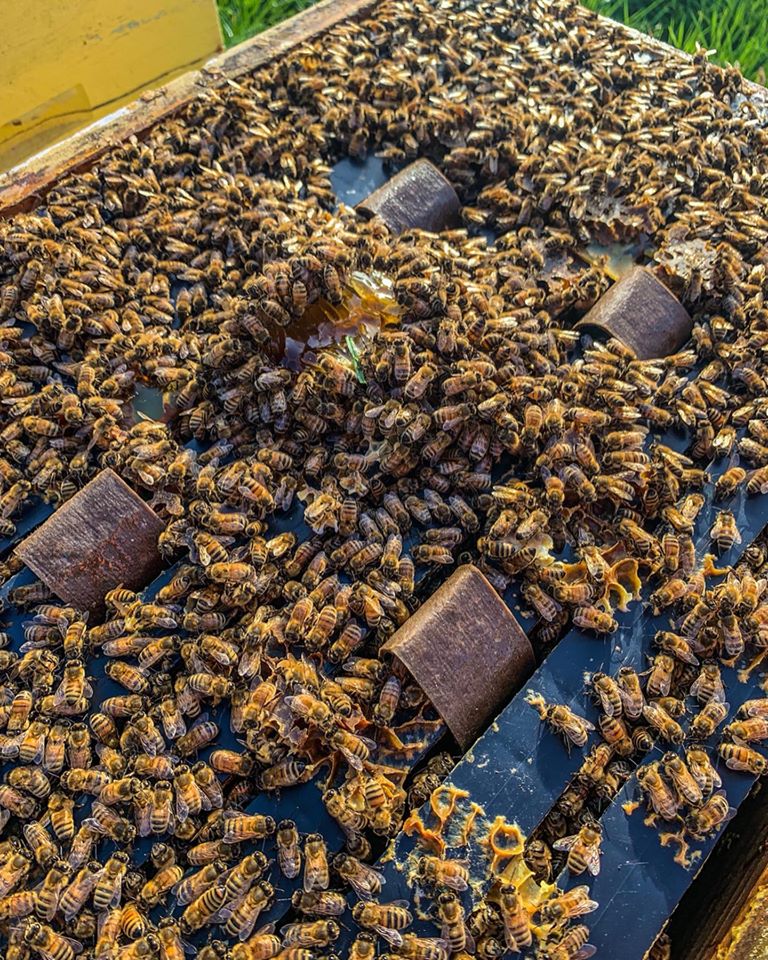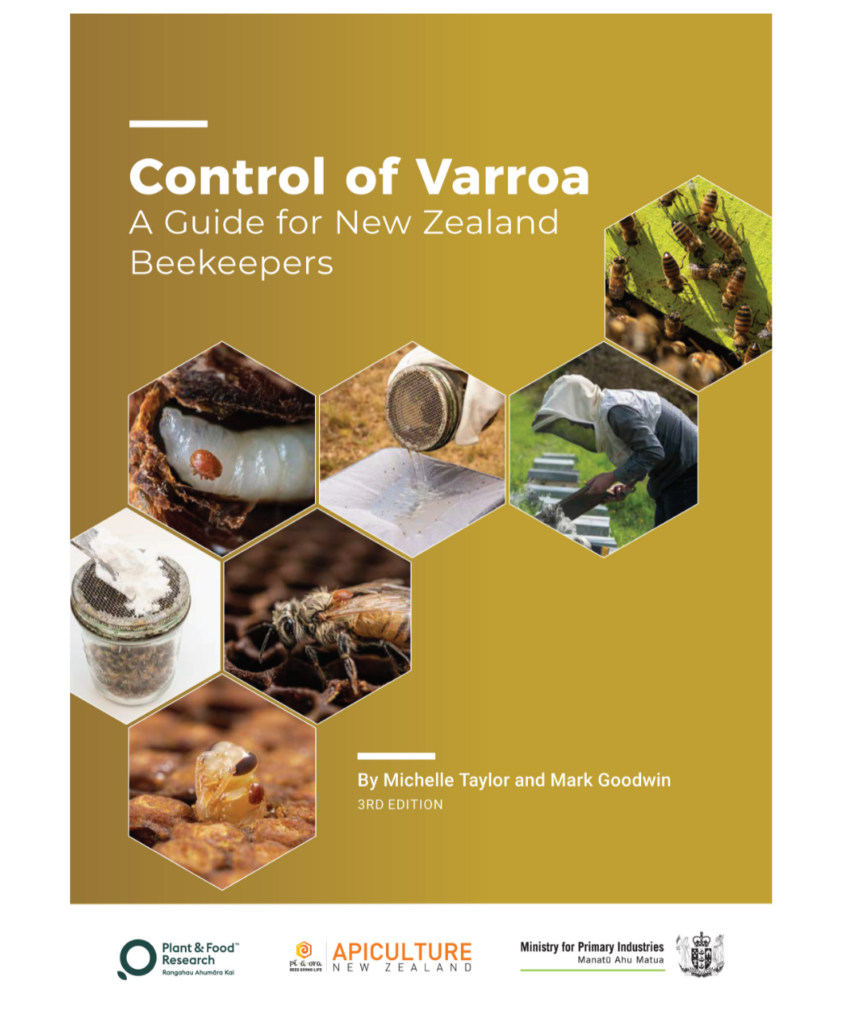Apitraz vs Apivar.
When comparing Apitraz vs Apivar we find these two products have the same active ingredient. They both require two strips per brood box. Pricing is similar as well.
Calier, a Spanish company, manufactures Apitraz. This product has a 12-month expiry date.
Apivar, a vacuum-sealed product, has a longer expiry date (24 months). Veto-Pharma in France manufactures this.
For your information, I have quoted the following from the Analytica Website –

Amitraz is the active ingredient that kills Varroa mites in both Apivar and Apitraz strips. When bees come into contact with the strips, amitraz is released from the strips and transported by the bees around the hive, killing Varroa. Amitraz breaks down into a series of metabolites in the hive, some of which can be toxic to both bees and humans at high enough levels. There is a higher risk that amitraz and its metabolites will be detectable in honey when strips are left in hives for longer than guideline recommendations or when hives are treated with more than the recommended number of strips. Note, other common miticides such as flumethrin (Bayvarol) and fluvalinate (Apistan) are more prone to accumulate in beeswax rather than honey
.
Do not confuse Apivar with Apilife-Var which is an organic treatment containing Thymol, Eucalyptol, Menthol, and Camphor.
Alternate your treatments using different active ingredients. If your mite load is still too high after your regular treatment, we suggest giving them an oxalic treatment. Use either oxalic/glycerine strips or apply with a vaporiser. https://www.hiveworld.co.nz/product-category/hive-management/bee-health/varroa-treatments/
To purchase Apivar – https://www.hiveworld.co.nz/product/apivar-varroa-treatment/




